QUEER REPRESENTATION (PART 2)
Post hidden under the cut due to graphic depiction of self-harm. Please mind the trigger warnings.
-Gay Men-
[TW: Hate Speech, Self-Harm] Gay men are raptured and never mentioned again in the book. Prior to the rapture, there's time to cram in a single unnecessary use of the f-slur. Note that Peter, who is gay or bi, is a mentally ill man whose life is a series of what his mother believes to be self-inflicted disasters and suicide attempts. Peter's mother is certain she doesn't want her loved one back: "[Peter] had to make everyone who loved him hate him. She wanted Peter safe with every cell of her body, but she didn't want him back."
-Asexual People-
[TW: CSA] The only asexual person in the novel is a man who runs a children's ballet troupe in order to sexual preys on children (including Jane), which is a common TERF rhetoric against ace people. (The TERF "logic" is that ace people sexualize children by pointing out that some children are ace, therefore other children aren't ace, therefore those children are being "sexualized". None of this is in good faith and it is all exclusionary gatekeeping bullshit.) Then the author backtracks and says the character isn't really asexual because he masturbates. That's not how asexuality works! Scene Score: This is regurgitated TERF bigotry that wasn't properly researched at all.
-Bisexual People-
The word "bisexual" does not appear in this book. Peter is thought to be "bi or gay" because he has a past history of dating both men and women, but we never learn what he considers his identity to be. Jane, the white protagonist, spends most of the novel in a romantic and sexual relationship with her Black lesbian lover--and ultimately chooses her husband over Evangelyne twice--but we never hear what she considers her sexual orientation to be.
I would normally put her in the bisexual bucket without hesitation, but the one sex scene she has with Evangelyne is cringingly awkward and uncomfortable. Evangelyne uses a strap-on to pleasure Jane, who has to keep her eyes closed the whole time. Jane then feels annoyance, embarrassment, and what I would almost describe as a sort of sullen resentment when making Evangelyne come. She has to counsel herself not to cry through the event, and is only okay again when the event is over.
This does not feel familiar to me as someone who used to identify as a bisexual woman. While not everyone is comfortable with pussy (and that's okay!) this doesn't read to me like someone who is eager to please a partner but just isn't sure what to do with that particular body part. Instead, this feels like a scene written by a straight woman who can't imagine being sexually attracted to a woman. I will note here for the record that Sandra asserts she is "a straight person" and isn't "attracted to girls". Scene Score: I don't know if bisexual rep even exists in this book, but I don't like whatever this is.
-Lesbian Women-
I saved this for last because it's a LOT. I will note that this book does one thing right that the (again, strikingly similar) Stephen King's Sleeping Beauties failed at: it doesn't portray lesbian relationships as inherently better or purer than m/f relationships. We see this first with Alma, who is angry and in grief at the beginning of the novel because her girlfriend, Evangelyne, has broken up with her: "bitches broke your heart and just fucked off." (Yes, the same Evangelyne who will hook up with Jane after the disappearances.)
Indeed, Evangelyne sounds like an inconsiderate girlfriend who discouraged Alma from becoming involved with Evangelyne's communist party movement: "She even thought she should have done more with the ComPAs when she was with Evangelyne, though Evangelyne had discouraged it. That should have tipped Alma off that their relationship was doomed." (The ComPAs are a grassroots communist political party that Evangelyne started in college. They are the ones who fix everything after the disappearances using volunteer community labor. How? Well, they print a lot of flyers and distribute them all over the country somehow and...that seems to do the trick. The logistics in this novel are maddeningly invisible.)
Alma shakes herself out of mourning her ex and her missing brother to notice that there are a lot of "improbably beautiful women...mostly single now" in the wake of the disappearances. There is no suggestion that most of these women might be numb from grief or shock right now and not interested in a relationship, and some of these passages feel like they edge into making Alma seem... hypersexual? predatory? That homophobic myth that lesbians can't be trusted because they'll compulsively seduce every woman?
Alma hooks up with a woman (Christine) in a neighboring mansion to the one Alma is squatting in, mostly to give an excuse for why the child POV character (Blanca) is allowed to hang out at Alma's when plot is happening, as Christine is Blanca's aunt. This relationship is light and breezy and seemingly mostly sexual; "Christine liked to sit up after sex, sentimentally talking about her [missing] husband" and then Alma sleeps over before leaving in the morning.
Back to Evangelyne, I wondered if she was perhaps more considerate than her embittered ex thought, but no. She's the leader of an important and rising grassroots communist movement, but she never answers her phone except in one case: "Evangelyne always had her phone turned off and never answered texts or voicemails, unless she was fucking you or trying to fuck you. The phone was for the fucking girl only; for all other purposes, you had to text her acolytes." This is not how party organization works, but the detail is repeated later because it's just that important to Evangelyne's character: she only allows access to herself in the cases of women she's trying to seduce.
Evangelyne discards her lovers swiftly and apparently without regret; when Jane arrives in town unexpectedly after the disappearances, Evangelyne takes her into her bed and Jane never asks "whose place I was taking, who that dildo was lying in wait for" and no one ever tells her.
Over the course of their relationship, Evangelyne is moody and difficult, punishing Jane with emotional withdrawal when Jane asks personal questions. Jane becomes Evangelyne's personal assistant--a detail that is more sinister than it might seem at first glance, until you realize that she's repeating the role she had as a child when she was the personal assistant for the man who sexually abused her--and handles all the important logistics of the communist party while Evangelyne remains the charismatic face of the movement and plays while Jane works--a cruel repeat of their unbalanced emotional dynamic in college.
Jane is unhappy in this relationship but sees herself as useful: a political wife to aid Evangelyne's ambitions to be president. Even so, she is worried by Evangelyne's prickly personality and sometimes fears she might leave Jane behind: "She used the first person singular—“I'm flying to California”—as if I weren't there. I remembered again that the Men [viewing] we were supposed to attend was at her ex's house. Half the ComPAs in L.A. had dated her, of course, but in this context, it felt different." Jane is relieved to announce that the flight had been canceled, but Evangelyne just arranges a private plane.
When Evangelyne begs for Jane to choose her over The Men, her plea focuses less on love and more on the tangible things she can give Jane: "I love you more than that Leo loves you, and I'm going to be president. What is he? What did he ever have to give you? I don’t want to be offensive, but in that world, you're a housewife with no skills and no options. Think what you can do here. Think what you can be. Don't be a goddamned fool. Choose me."
[TW: Racism, Murder by Cop] The scene fades to black as The Men return, Jane's choice either unmade or left unsaid. Once returned to the moment before the event, she remembers that cops are waiting at Evangelyne's door and that only the rapture prevented Evangelyne's murder by cop. With her lover's safety in mind, Jane... moseys down the mountain on which she's been camping, heads into town, visits a small pizzeria, asks for a Diet Coke, and then finally gets around to calling Evangelyne with a warning only to find she's too late. This is presented as tragic not because Jane has lost her one true love, nor because a Black woman's death simply IS tragic, but because Evangelyne was the key to turning around climate change.
(As I'm writing this, I'm struck that "Black woman is killed by cop" is how the remarkably similar Stephen King's Sleeping Beauties ended, too. I don't know what to do with that coincidence. The books really are extremely similar: the "dream land" in Sleeping Beauties is much the same as the "demon world" in The Men. And there is a "Door" that the humans have to find to escape.)
I have to also say that I am puzzled how Sandra can claim that this book breaks down gender binaries, when Jane's and Evangelyne's relationship seems to mirror the most toxic ideals of traditional conservative "helpmeet" marriages: Jane expects to suppress all her desires as The Wife and support Evangelyne as the, like, Lady Husband. That's not how queer relationships tend to work!
Speaking of the magical spell, we have to talk about Poppy. She's Evangelyne's first girlfriend, dating her when Evangelyne is a 16 precocious Black girl and certifiable genius while Poppy is 22 years old and a white gay changeling living among the poor white trailers.
Poppy is mentally ill and one day Evangelyne makes the innocent mistake of telling her about ancient Yoruba death rituals (the Yoruba people are a West African ethnic group that mainly inhabits parts of Nigeria) and how "the Yoruba king was buried with scores of other people, who were sacrificed so they could continue to serve him in the other world."
Poppy becomes obsessed with ritual human sacrifice, at first believing that Evangelyne's Black community perform human sacrifice now, and eventually going on to craft her own ritual that causes the disappearance of "The Men." Her blithely telling her white family about the Yoruba king leads directly to Evangelyne's entire Black community and family being massacred by cops in a scene reminiscent of the Waco, Texas massacre of the Branch Davidians. Evangelyne is the only survivor and is unjustly imprisoned as a cop killer.
In prison and surrounded by sweet white women-- no really.
In prison and surrounded by sweet white women, Evangelyne puts pen to paper and writes her own communist manifesto. Unsure who else to send the finished draft to, she desperately reaches out to Poppy--who, while still mentally ill, has written to Evangelyne swearing to do whatever she can to prove her innocence. Poppy takes the manuscript to all the right journalists, professors, and lawyers, and mobilizes an army of white people to get Evangelyne all the resources, attention, and legal aid she needs to get out of prison and become a rising political star. Evangelyne returns the favor by cutting Poppy off forever.
It's unclear whether the author thinks Evangelyne is unkind for cutting Poppy out of her life. The emotional math is more than a little hard to balance: Poppy undeniably ruined Evangelyne's life and was absolutely racist in her youth in ways that Evangelyne condemned her for, but put in real work to perform restitution for the tragedy she caused whilst unmedicated and in a combination bipolar fit slash PTSD episode***.
[TW: Rape] ***The event which sent cops out to Evangelyne's home was when Poppy called Evangelyne out to her home to rescue her from being repeatedly raped by her uncle and his friend. Evangelyne brings three male relatives with her to help rescue Poppy, but Poppy screams when she sees strange men waiting for her outside in the dark. She then lapses into a nonverbal trauma episode which requires hospitalization, and therefore can't explain to the cops that Evangelyne and the boys didn't actually harm her.
Obviously all this has been carefully contrived to make it as emotionally fraught as possible. Poppy's racism is described in the narrative as a function of her uneducated upbringing at the hands of white racists melding with her bipolar disorder and hazy grip on reality, not something she consciously perpetuates. Evangelyne's abandonment of Poppy comes on page 249 of a 270 page novel, after we have already been primed to see Evangelyne as a user who climbs over people on her way to the top and leaves them behind: Jane, Alma, and the anonymous "half the other members" of her political party that have dated her. Of course the reader is primed to see Poppy as yet another stepping stone that Evangelyne clambered over on her way to the top. Which I....do not like.
Myself, I'm inclined to wholeheartedly support Evangelyne for cutting Poppy out of her life while being angry that no one else in "the LGBT community of the Northwest" for not getting Poppy mental health treatment. There's a strong vibe to the effect that the queer community is enjoying the drama of falling for Poppy's manic pixie skinny white girl aesthetic and then washing their hands of her when her mental illness "ruins" lives.
This neglect of one of their own leads to the predictable effect of ending in Poppy's tragic death, and the unpredictable effect of her sending everyone with a Y chromosome to hell in the process. Evangelyne learns this mere moments before the disappearances when a package from Poppy arrives in the mail.
[TW: Immolation] These thousand are the "Burning Girls" that have been briefly and mysteriously alluded to a couple time in the novel, and which receive a fictional Quora post on page 111. They don't come up much in the novel; 12 of the 18 references in the novel are clustered in this one Quora page section. Were they also hearing voices and suffering from mental illness like Poppy? Unknown. Did they come up with the ritual together or individually or was it fed to them by the "demons"? We don't know. Evangelyne is the only one, apparently, who receives an explanatory package; none of the other 999 girls apparently sent anyone a similar packet warning *their* loved ones about the hitch. Rude.
Lesbian score for the novel: one dead Black woman at the end killed by cops, one dead white girl suffering from bipolar disorder killed by suicide (or demons). Alma reboots back to the beginning of the novel (like everyone else) which means that she's transported back to before she used the event to cure her alcohol dependence. It's implied that Jane might choose to look up Alma and try to help her with that for old time's sake in a friendship Alma won't remember, but it's also implied she might not.
That's what I have for queer representation in this novel: it's bad. This is getting long so I'm going to post it now. I have other criticisms about racial representation in the novel and overall world-building fail, as well as line-by-line thoughts on practically ever page, but I need to go lie down because I've been at this for several hours now. (Sorry!)
Some of you have asked how you can compensate me for this labor (thank you!) which has consumed me from Sunday onward. I will post a link to my donation sites, but if you REALLY want to help me: please buy a copy of Cinder the Fireplace Boy and consider leaving a positive review. Reviews are marketing for indie authors like me who don't have a budget for advertisements.
Some others will question why I did this project, because people always do: I must be doing it for clout, out of hate, from a place of greed, because I'm so bitter-hearted that I have to make others suffer. Wrong. I get very little out of these live-reads and I always hate posting things that an author may read and feel bad about. No, I do this because I feel like I have a talent for it and because it's my way of giving back to the community. I'm too disabled to march at Pride, but I can bring receipts when people say "read it before you criticize!" If I can save a trans woman from having to read a transmisogynistic novel for review, even better.


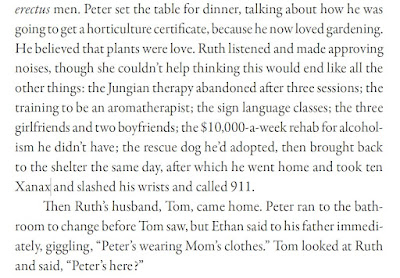

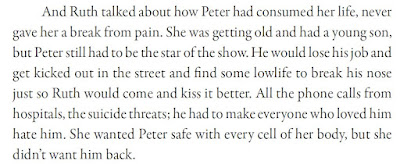


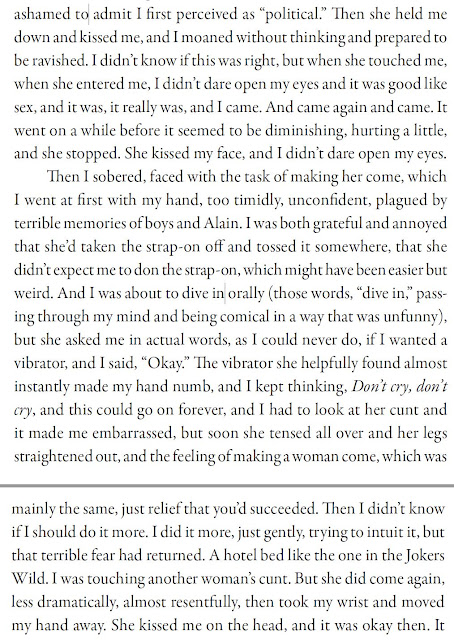













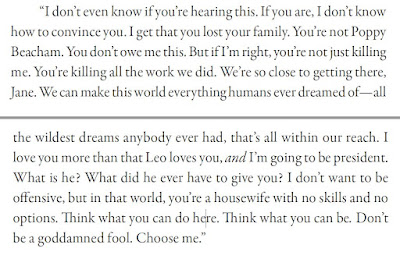



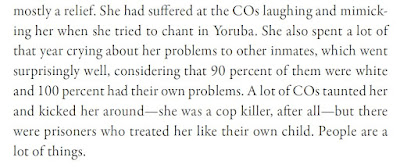
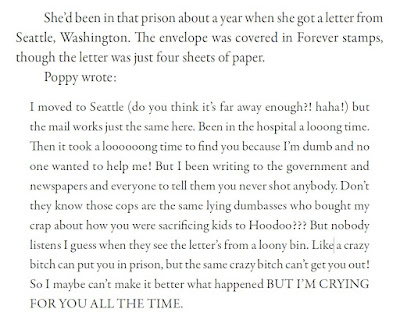
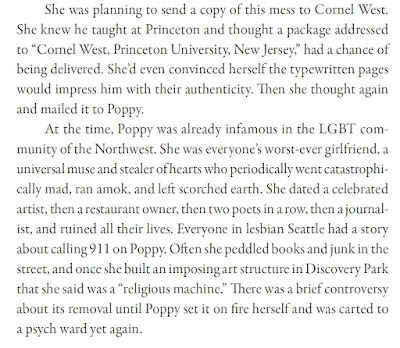

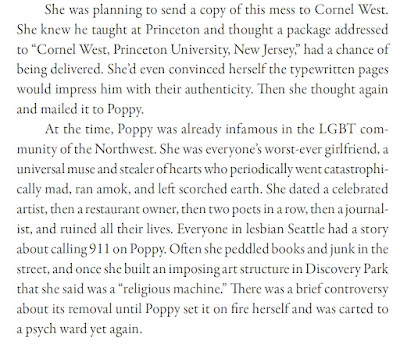
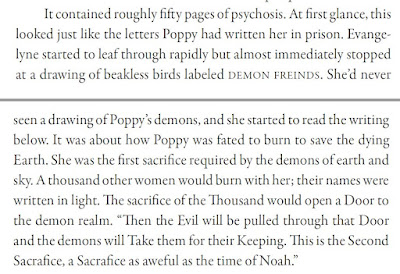
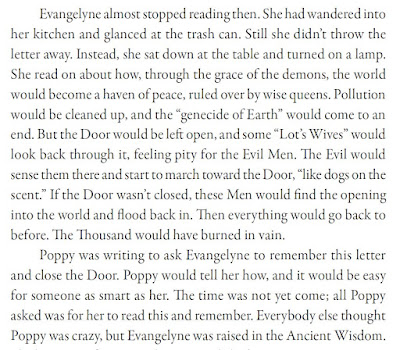

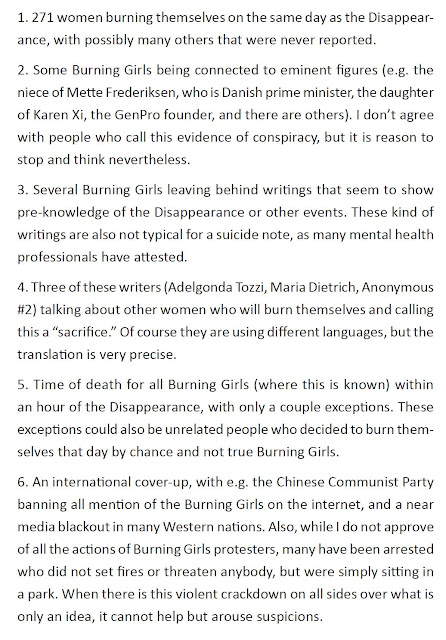
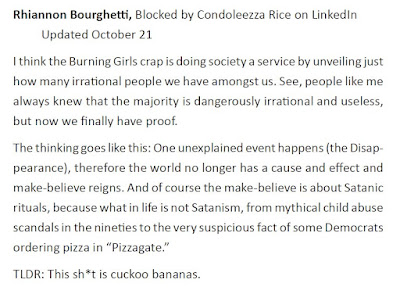

0 comments:
Post a Comment